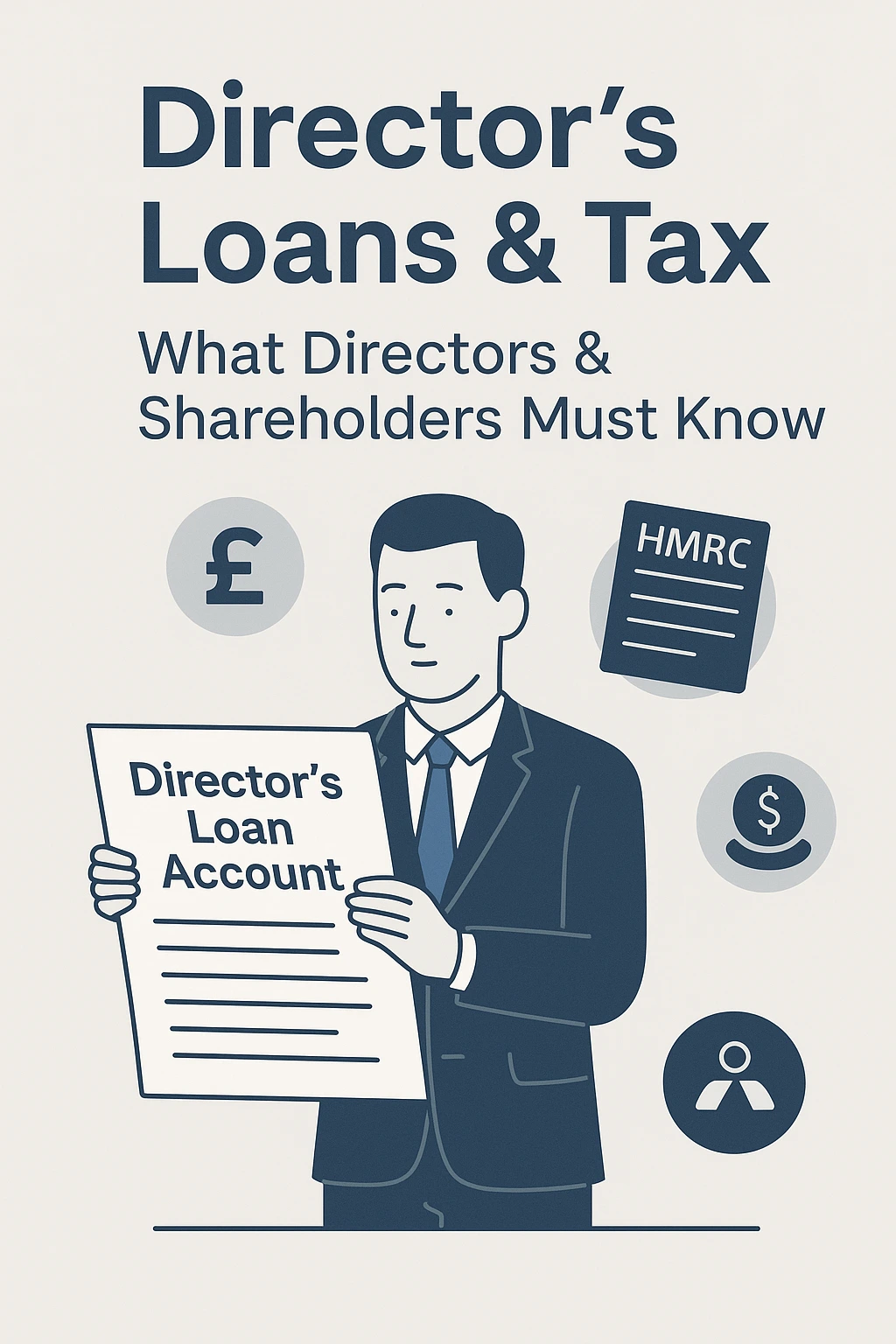
Director’s Loans & Tax: What Directors and Shareholders Must Know
Learn how director’s loans are taxed, how to manage a director’s loan account, and the responsibilities directors and shareholders face under HMRC rules.
Director’s Loans: Tax Implications and Responsibilities
A director’s loan occurs when you or your close family members receive money from your company that is not a salary, dividend, or expense repayment. It’s important to keep a detailed record of these transactions, known as a ‘director’s loan account.’
Managing the Director’s Loan Account
-
Record Keeping
: Document any money borrowed from or paid into the company. This record should be included in the ‘balance sheet’ of your annual accounts.
-
Overdrawn vs. In Credit
: Your tax responsibilities vary depending on whether the account is overdrawn (you owe the company) or in credit (the company owes you).
Tax Responsibilities
If you owe your company money, you or your company may have to pay tax. Key tax considerations include:
- Loan Amounts Over £10,000 Additional tax liabilities may arise if the loan exceeds £10,000 or if you pay interest below the official rate.
- Loans not repaid within nine months of the end of the Corporation Tax accounting period are subject to a 32.5% tax rate (25% if the loan was provided before April 6, 2016).
- Written-Off Loans If the loan is written off or released, it must be included in your self-assessment tax return, and Class 1 National Insurance may be payable through the company payroll.
Claiming Tax Refunds
Your company can claim a refund of the corporation tax paid on a director’s loan that has been repaid, written off, or exempted. The claim must be filed within specific time frames:
- Post-Compensation Claim Filed nine months and one day after the end of the income tax reporting period when the loan was resolved.
- Claim Deadline Must be within four years (or six years if repaid on or before March 31, 2010).
Additional Considerations
- Lending Money to the Company No corporation tax is paid on money you lend to your company. Interest charged on such loans is considered both a business expense for the company and personal income for you.
- Reporting Interest Report this interest on your personal Self Assessment tax return. The company must pay you the interest after deducting basic rate income tax (20%) and report and pay the tax quarterly using form CT61.
Understanding these aspects of director’s loans ensures you comply with tax laws and manage your company’s finances effectively. Proper record-keeping and timely tax payments are crucial to avoiding penalties and ensuring smooth operations.
About Golden Tree Consulting
Financial expert at Golden Tree Consulting
Helping businesses in Croydon navigate financial complexities with tailored solutions
More Articles You Might Like
Continue exploring our financial insights

Do I Need an Accountant for My Croydon Business?
Not sure if your Croydon business needs an accountant? Learn the difference between bookkeeping and accounting, and when it’s time to get professional help.

Why UK Startups Are Choosing Estonia for Company Formation
Explore why Estonia is ideal for UK startups. Learn how digital-first systems, zero corporate tax on retained profits, and fast company formation make Estonia a smart move for growth.

How to Choose the Right Local Accountant in Surrey, Kent & London
Looking for an accountant in Croydon, Reigate, or Surrey? Learn how to choose a local accountant who understands small business finances and helps you save time and money.
